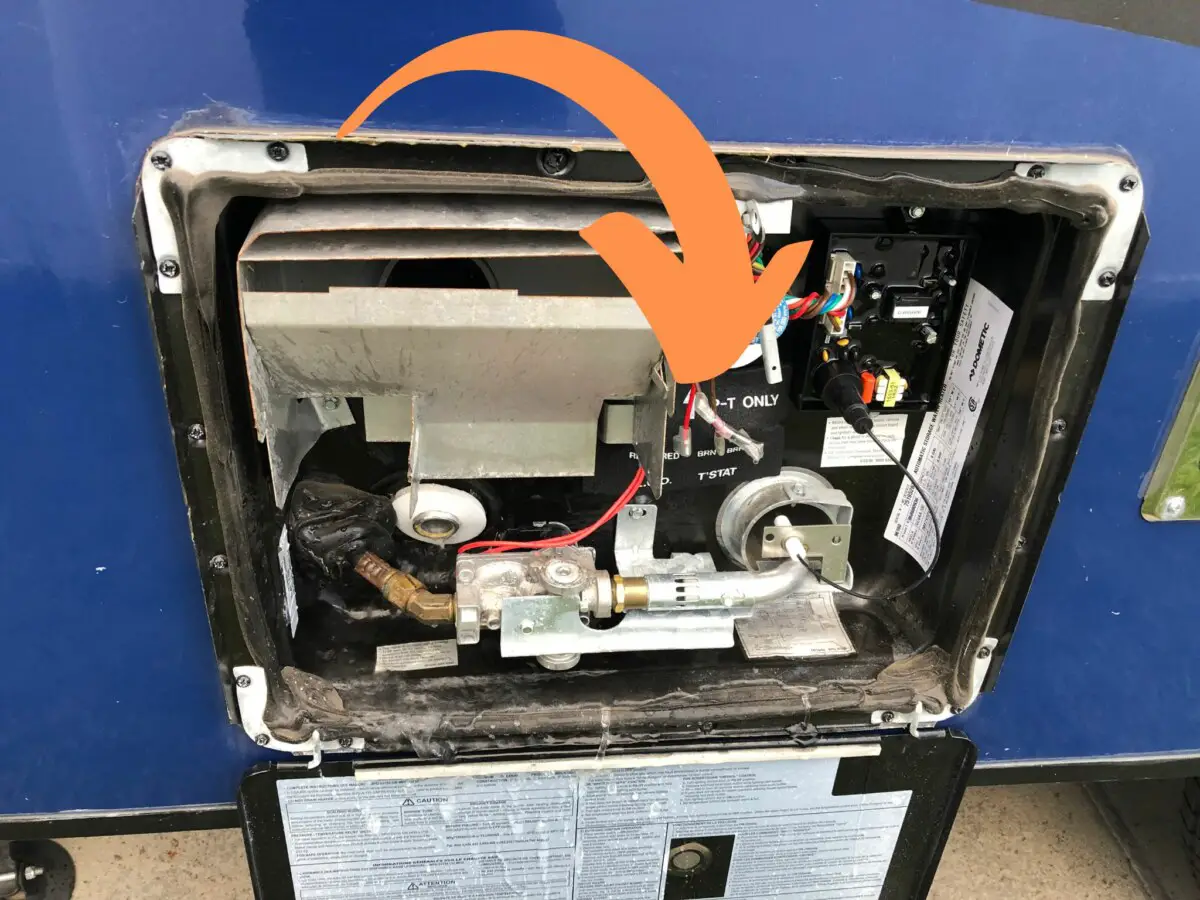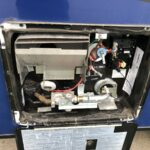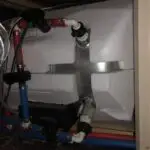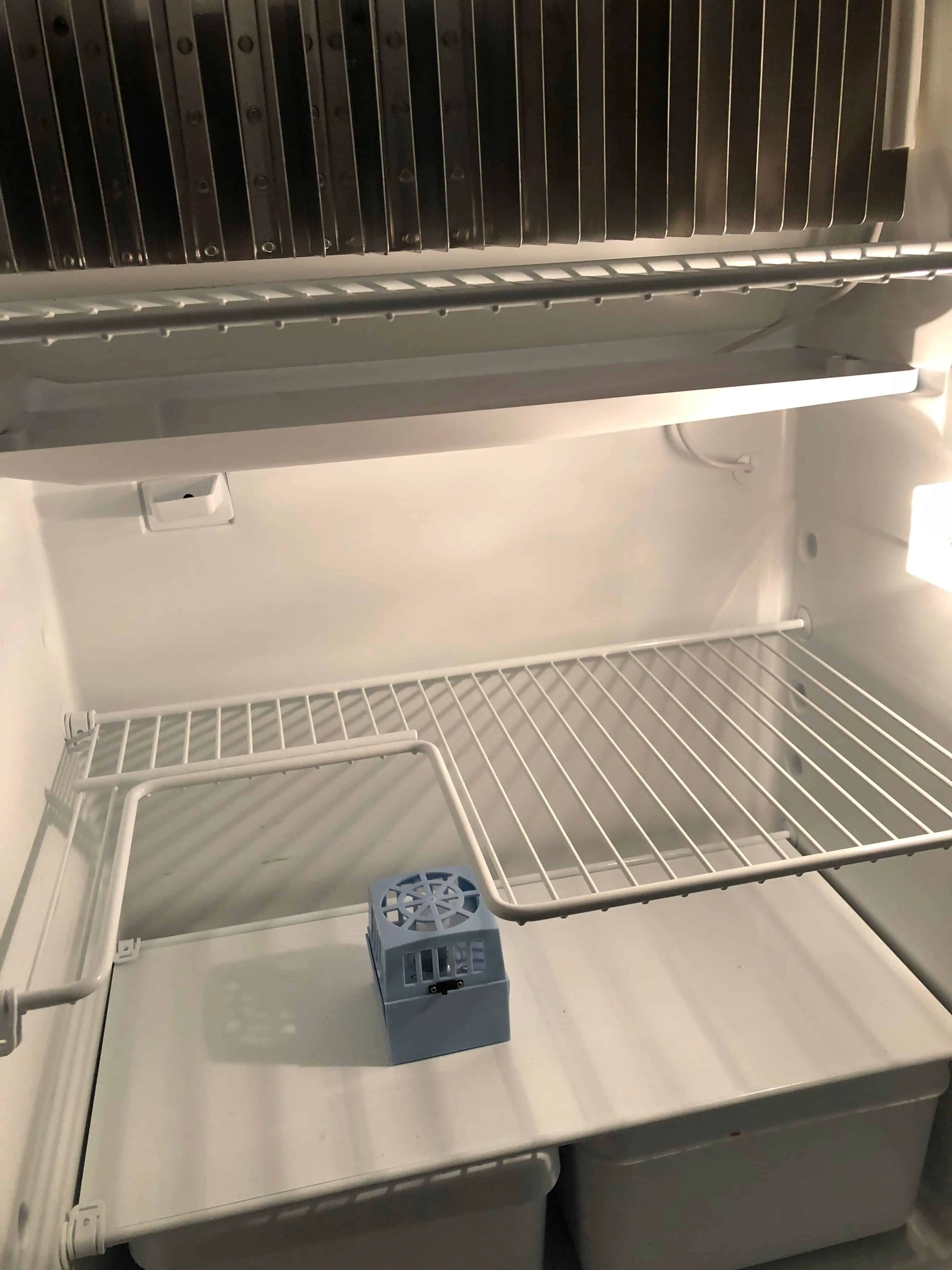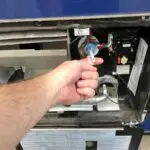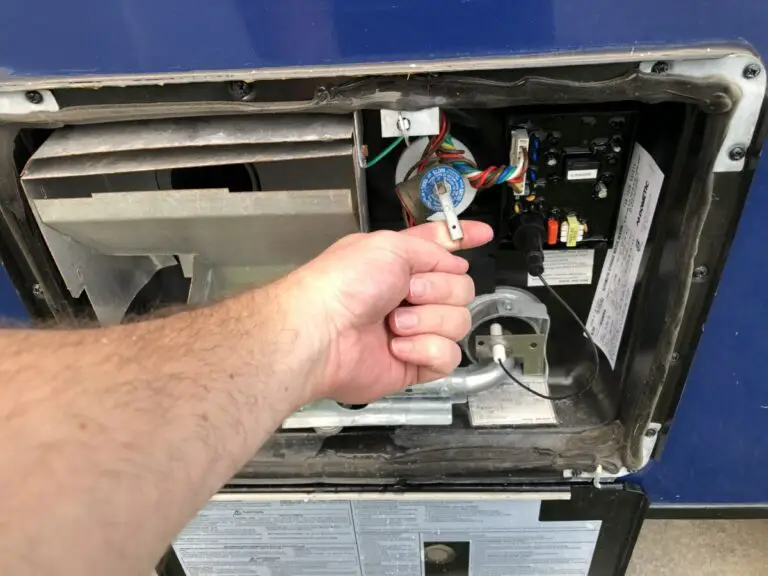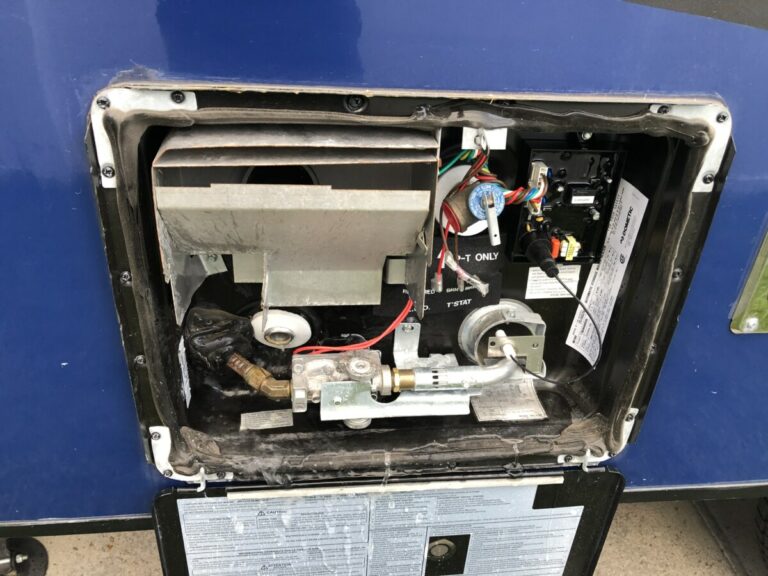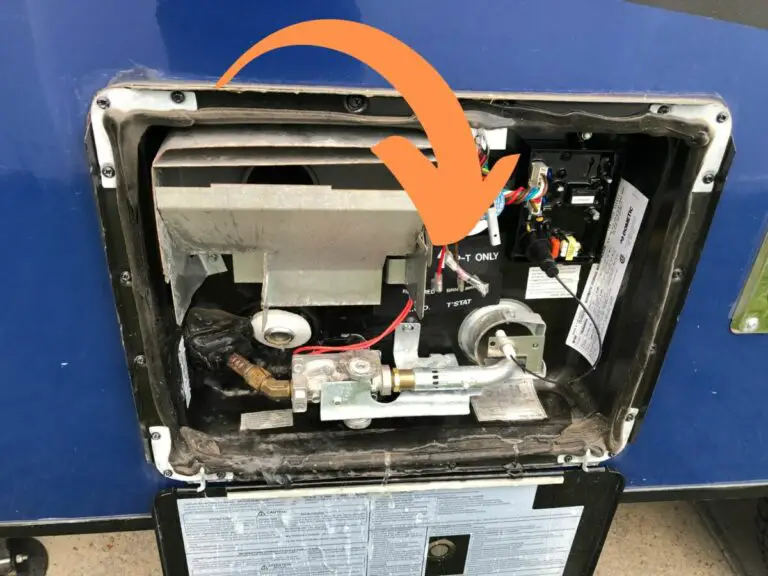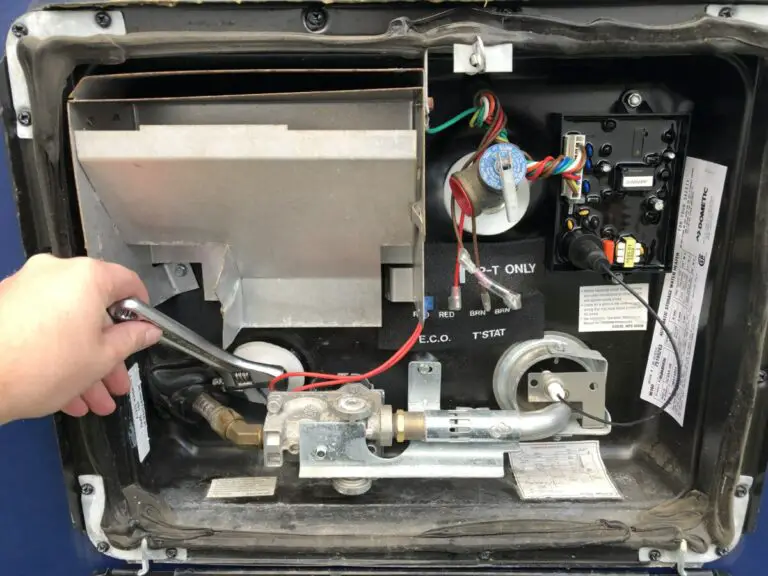RV Water Heater Not Heating Up? How to Fix Lukewarm Water Issues in Your Camper
Let’s face it – dealing with lukewarm water on an icy cold day is not pleasant! Especially if your RV water heater is not doing its job, and getting down to the root cause feels like finding a needle in a haystack!
Your RV water heater may be lukewarm because of a faulty thermostat, sediment accumulation, the tank’s too small, tripped breaker, no gas supply, blocked pipe, defective heating component, leaky tank valve, high-flow rate (for tankless water heaters), or an open bypass valve.
Even though solving your RV’s lukewarm water issue may sound straightforward, knowing what you can do by yourself, and which jobs should be outsourced is essential. So, if you want to have piping hot water in no time – read on!
11 Reasons And Quick Fixes For Lukewarm RV Water
There are several reasons why your water is not heating up properly, and most of them are, fortunately, quick DIY jobs.
Although, it is sometimes wise to consult with a professional, especially if you are dealing with leaky gas valves or repairs that require specialized skills.
So, without much further ado, here are the top 11 reasons for lukewarm water, including potential quick fixes.
Faulty Thermostat
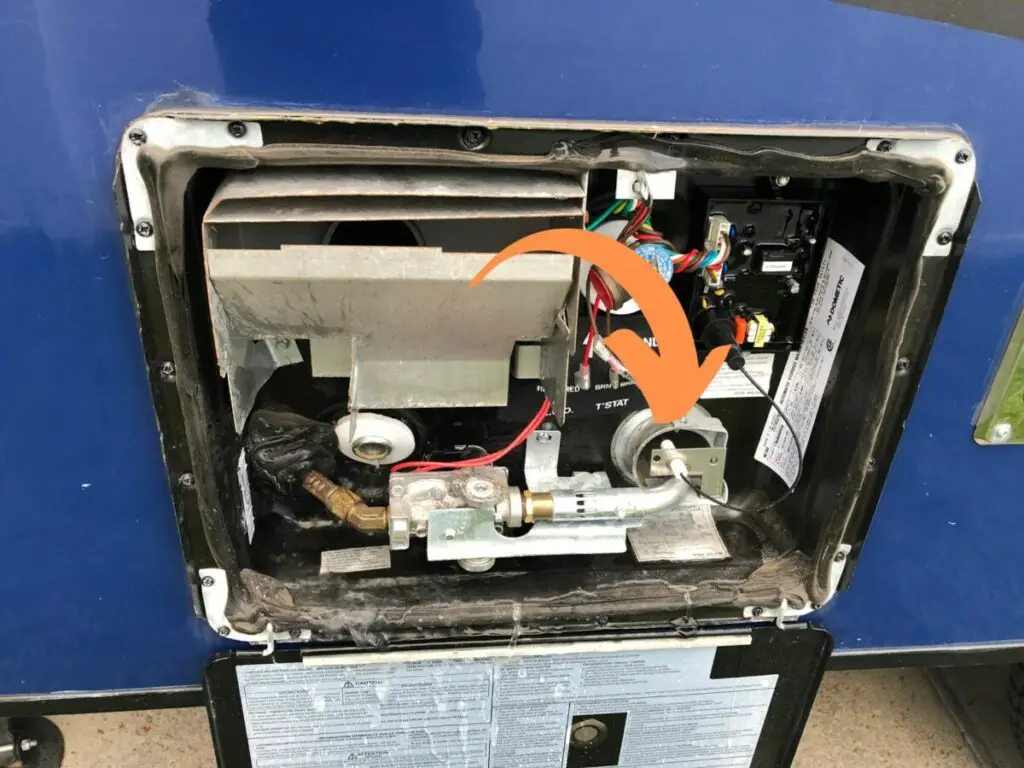
A faulty water heater thermostat is one of the most common reasons for lukewarm water.
While faulty thermostats mainly occur in older types of water heaters, newer versions can also break if it is not regularly maintained or serviced at least once a year.
It’s possible that your thermostat is unable to detect the correct set temperature. As a result, it incorrectly heats up water that is lukewarm.
Potential quick fix: Check if your thermostat is faulty by setting it at a higher temperature. If it does not start heating up soon, it regrettably needs to be repaired or replaced by a professional.
Sediment Debris Accumulation
If your water heating tank is new, a buildup of sediment is likely not the cause of your lukewarm warm water. You will have to troubleshoot the other suggested causes.
Although, if you have a relatively old water heater, you may have accumulated sediment in your unit that could result in lukewarm water.
The sediment buildup occurs over time when the water collected for heating contains debris like dirt, minerals, or sand that sinks into the bottom of your tank.
And as the accumulation of debris or sentiment grows, it impacts your water heater’s ability to do its job and heat up to a higher temperature.
Another reason for sediment accumulation is hard water, which contains many more minerals than soft water.
So, if you have mainly used hard water in the past, and your tank is quite old, chances are great that your lukewarm water might result from a mineral or debris buildup.
Potential quick fix: Open your water heater’s drain valve to check if there is a sediment buildup. If you notice that the water is not clear, you have most likely isolated the cause for your lukewarm water.
To resolve the issue, pour cold water to the halfway point into the tank to loosen the debris, drain it, and repeat this process until the water runs clear. We use this wand to flush out our water heater.
To prevent this issue from recurring, if you mostly use hard water, consider adding a water heater filter once your tank has been flushed out. Although, most heater filters only last 1-5 years before they need to be replaced.
The Water Heating Tank Is Not Large Enough
Unless you have a tankless or on-demand hot water heater, you could have lukewarm water if your tank is not big enough to meet your needs.
Therefore, you have most likely depleted the amount of stored water that your tank can heat up, and it needs more time to produce hot water.
Potential quick fix: If you are on a tight budget and cannot afford to upgrade to a tankless water heating system that provides instant hot water and is far more energy efficient.
You will need to stagger your hot water use throughout the day and use appliances that typically use hot water, like washing machines and dishwashers, at separate times of the day and long before you plan to shower.
And if you have a large family, try to shower at different times so that the water heater has enough time to work efficiently.
The Electric Hot Water Heater Lacks Power
Suppose you have an electric hot water heater that produces lukewarm water. In that case, its power source was probably terminated.
Potential quick fix: Check if you have a tripped breaker. If that is the case and you flip it back on, it should start heating up slowly, although if it has been tripped for some time, it may take longer to heat up.
However, suppose your breaker keeps tripping, or your water heater does not work after having flipped the breaker to the operating mode. In that case, you will need to call a skilled professional to fix the electrical fault.
Gas Water Heater Fuel Supply
With gas water heaters, the only possible cause of lukewarm water is if your gas supply has run out or if the water heater is not getting its fuel to heat up water.
Potential quick fix: Firstly, check that you have enough fuel. If you have more than enough, ensure that your water heater has access to the gas flow by seeing if the pilot light is on.
If your pilot light is on, your thermocouple might need to be cleaned or repaired as it is not igniting a gas flow when the pilot light is on.
We have found this propane tank monitor to be the best on the market with its higher accuracy than other types.
Faulty Water Heater Dip Tube
Your water heater contains a dip tube that channels cold water in the tank from the top to the bottom, where it is heated.
If your dib tube is faulty, it cannot reroute cold water to the bottom half of the tank where it is heated. You might notice fine plastic fragments in the water, which indicates that it is not functioning correctly.
Potential quick fix: If your dip tube is noticeably cracked, you can replace it. Although, it’s sometimes more cost-effective in the long run to purchase a new tank if your current one has seen better days.
Although, it’s important to note that having your water heater serviced regularly could prolong the lifespan of a new or a replaced dib tube.
A Blocked Water Pipe
Another potential reason for lukewarm water could be a clogged pipe and not a faulty water heater. Mainly because a clogged water pipe can prevent heated water from reaching your faucet.
Potential quick fix: Run all your sink and shower faucets to check if they all produce lukewarm water or only one of them.
You will need to call a plumber to unclog the pipe if it is only one faucet with lukewarm water. In a worst-case scenario, the pipe would need to be replaced.
Defective Heating Components
Lukewarm water can sometimes result from faulty electric and gas water heating components.
Some electric water heaters contain two heating elements; thus, if one breaks, the additional element needs to take over and cannot heat up water efficiently.
Gas water heater valves tend to last roughly 10 years, after which they start to not function properly. You will have lukewarm water and may begin noticing a foul smell like rotten eggs.
Potential quick fixes: If you have a gas water heater, you will need a professional to replace the gas valve. This is sadly not a DIY job because replacing it yourself can be extremely dangerous.
If you have a faulty electric water heating element, you can easily replace it with a new one. Although, if your water heater is old and no longer serving your needs, it might be worth replacing.
The Tank Could Have A Leaky Valve
Even though you might not see a gaping hole in your water heating tank, it could have a hidden leaky valve that prevents water from thoroughly heating up.
Potential quick fix: Unfortunately, this is not something you should fix yourself, especially if you mistakenly replace a leaking valve that results in pooling water under your tank. That has the potential to grow mold and mildew.
High Faucet Flow Rates
If you have a tankless water heater, its gallons per minute (GPM) flow rate may be too high to produce enough hot water during the day.
So, if the flow rate for all your faucets is too high compared to what the tankless water heating system can produce, you will have lukewarm water.
Potential quick fix: Solve the issue by installing a low-flow showerhead and faucets to produce and conserve hot water.
The Bypass Valve Is Still Open
Finally, check if your water heater’s bypass valve is still open. It sometimes happens that it is still in a “winterized mode” and that water and antifreeze are still being redirected and not flowing in your water heater.
Conclusion
Finding out why your RV water heater only produces lukewarm water is a necessity, especially on icy cold days when a hot shower is essential. Although finding potential causes may take a little troubleshooting. While some are quick fixes, others are best left to skilled professionals.
Be the first to be notified about FREE tips, hints, coupon codes, and email-exclusive information. All for FREE!

